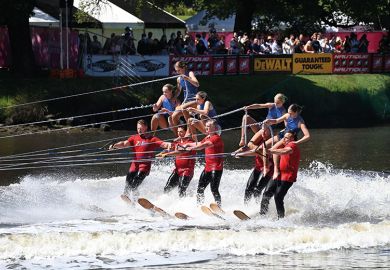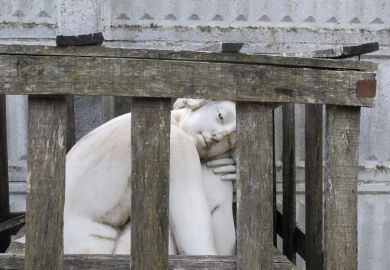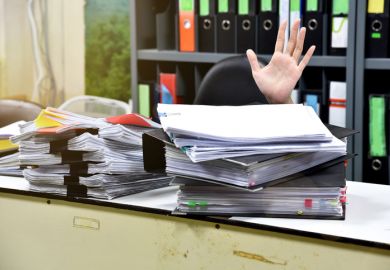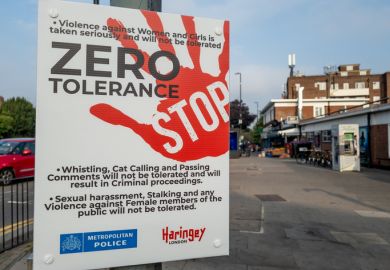A London School of Economics academic has accused a prestigious history journal of prioritising “identity politics” over intellectual quality, claiming he was told that a proposed special issue would not go ahead unless it featured a female contributor.
In a resignation letter to the Journal of Global History’s editorial board, Gagandeep Sood, an associate professor of international history at the LSE, said he was quitting as a co-editor of the Cambridge University Press (CUP) title because he was given a “make-or-break” ultimatum to include at least one female author in a planned collection of essays.
While he would make efforts to find a suitable female contributor, Dr Sood explained that the project concerned “an incipient subfield of global history…currently populated by a very small number of scholars who are very largely male”, so this might not be possible. By making the inclusion of a female author an “a priori condition”, the journal was indicating that it was “open to compromising intellectual quality and intellectual fit in favour of considerations of identity politics”, he continued.
THE Campus resource: Breaking barriers for women - enough talking, time for action
Describing the policy as “misguided”, “insidious” and a “form of dogma”, Dr Sood added: “If we begin by allowing considerations of [this] kind of identity politics…to compromise intellectual quality and intellectual fit, where will it lead us?”
Prioritising “non-intellectual considerations” of “race, class, gender, skin colour, creed or caste” within peer review threatened to “severely damage the journal’s reputation and its position in the field”, he concluded, adding: “The only metrics that have counted for me when it comes to deciding on whether or not to proceed with a particular submission are intellectual quality and intellectual fit.”
Speaking to Times Higher Education, Dr Sood said: “I explained we would work hard to find a suitable female contributor but, given the current nature of the subfield in question, we could not guarantee one a priori. At that point, the conversation moved from the need for bringing a multiplicity of viewpoints to the journal to a dogmatic insistence that a female author be included, or the project would not go ahead.
“If the imposed condition had been ‘we must include someone with Punjabi heritage or with brown-coloured skin’ – as in my case – I would have responded in the same way,” added Dr Sood, who explained that “the principles of intellectual quality and intellectual fit must be supreme” for peer-reviewed journals.
However, the journal’s senior editors, Ewout Frankema, professor of rural and environmental history at Wageningen University, and Heidi Tworek, associate professor of international history and public policy at the University of British Columbia, stood by their actions.
In a statement, they said it was “suggested that Dr Sood consider adding some highly distinguished female historians to his line-up”. “He was provided with several concrete suggestions” that were “starkly rejected”, they asserted – a claim denied by Dr Sood. “He was simply asked to consider and try to include female historians in the line-up in accordance with the editorial team’s commitment to encourage diversity in submissions,” the pair said.
“Articles in the journal’s main section are double-blind peer-reviewed, to ensure that no identity characteristics influence the assessment of the quality of articles under review,” they added.
A CUP spokesperson backed Professor Frankema, stating that “in choosing to challenge a proposed all-male section of solicited contributions in an academic field that has many distinguished women, he and his editorial colleagues upheld the journal’s mission. They were right to do so.
“The journal pursues scholarly excellence and a diversity of perspectives and ideas while defending academic freedom. These elements of the journal’s mission can be, and are, mutually reinforcing.”
Register to continue
Why register?
- Registration is free and only takes a moment
- Once registered, you can read 3 articles a month
- Sign up for our newsletter
Subscribe
Or subscribe for unlimited access to:
- Unlimited access to news, views, insights & reviews
- Digital editions
- Digital access to THE’s university and college rankings analysis
Already registered or a current subscriber?








